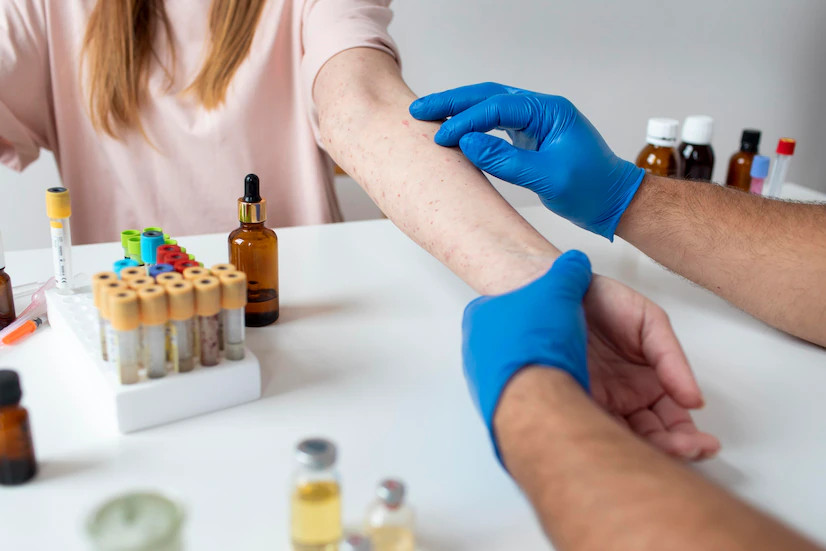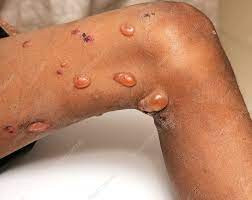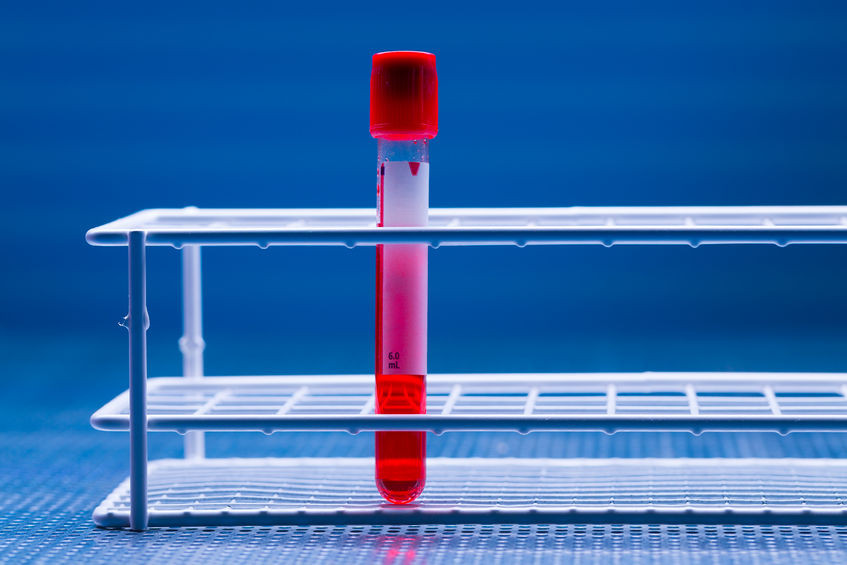Definition
Goodpasture syndrome is a life-threatening autoimmune disorder. This condition causes the immune system to attack lung and kidney tissues. The body of a patient with Goodpasture syndrome produces proteins (antibodies) that attach to collagen in specific parts of the lungs and kidneys. When these antibodies attach to collagen, they cause severe inflammation and tissue damage.
Goodpasture Syndrome, a rare autoimmune disease, was first described in 1919. It is estimated to affect fewer than two cases per one million people. This syndrome is more commonly found in men than women and usually begins between the ages of 20 and 30, or after the age of 60.
Symptoms of this disease include coughing up blood, difficulty breathing, fatigue, and anaemia. When the disease affects the kidneys, patients may have blood in their urine, leg swelling, and high blood pressure. If kidney disease is severe, patients may notice that they produce only a small amount of urine and may also experience nausea and vomiting. Treatment includes medications and a procedure called plasmapheresis. This procedure removes plasma containing these harmful antibodies and replaces it with healthy plasma.
If left untreated, Goodpasture syndrome can lead to kidney inflammation (glomerulonephritis) and may cause permanent kidney failure. The disorder can result in severe bleeding in the lungs, which is a major cause of death due to Goodpasture syndrome.
Causes
The syndrome can be hereditary, suggesting a possible genetic component. As a type of autoimmune disorder, Goodpasture syndrome causes antibodies produced by the immune system to attack collagen. Collagen is a protein with various functions, including being a part of the structure of many tissues and aiding in blood clotting. Goodpasture syndrome targets collagen in the kidneys' Glomerular Basement Membrane (GBM). Anti-GBM antibodies also attack collagen in the air sacs of the lungs, damaging tissues and causing symptoms related to those organs.
Individuals with Goodpasture syndrome might have 8-90% of the human leukocyte antigen (HLA) gene called HLA-DR15. HLA is a protein that helps the immune system distinguish between the body's tissues and foreign substances (or invaders). In individuals with the HLA-DR15 gene, the immune system failed to recognize the self-tissue.
Sometimes, Goodpasture syndrome can develop after an infection, such as a cold or flu. People who smoke, use cocaine, or are exposed to metal dust and hydrocarbon chemicals (such as methane or propane) are more likely to develop Goodpasture syndrome. Scientists believe that these environmental factors may trigger the disorder in individuals who have HLA-DR15.
Risk factor
Goodpasture syndrome is more common in individuals of Caucasian or white ethnicity, especially in young men aged between 20 and 30 years and those who are over 60 years old.
Other factors that can increase the risk of Goodpasture syndrome include:
- Exposure to certain chemicals, such as hydrocarbon solvents and herbicides,.
- Exposure to metal dust.
- Use of certain medications, such as cocaine.
- Tobacco smoking habits.
- Viral infections.
Symptoms
Goodpasture syndrome is a condition that affects both the lungs and kidneys. Typically, symptoms related to the lungs appear first, such as coughing, shortness of breath, and chest pain. As the condition progresses, symptoms related to the kidneys may also develop.
- Difficulty breathing, chest pain, cough, and a crackling sound when deep breathing
- Fatigue
- Fever
- Nosebleeds and coughing up blood
- Pale skin
Meanwhile, symptoms of Goodpasture syndrome resulting from kidney damage include:
- Anaemia
- Blood in the urine (hematuria)
- Reduced urine output
- High blood pressure
- Nausea and vomiting
Diagnosis
The diagnosis of Goodpasture syndrome can be established through a process that includes medical history, physical examination, and diagnostic tests.
During the medical history, the doctor will inquire about the patient's primary complaints, additional symptoms, past medical history, family medical history, and previous treatments. The physical examination involves assessing vital signs such as blood pressure, pulse, body temperature, and respiratory rate. Additionally, the doctor will conduct a thorough physical examination from head to toe.
Diagnostic tests include various assessments, such as urinalysis to evaluate protein levels and red blood cells in the urine and blood tests to detect antibodies attacking the lungs and kidneys.
Moreover, a chest X-ray may be performed to assess lung damage. Sometimes, a kidney or lung biopsy takes a small amount of tissue from these organs for further analysis. All this information helps the doctor confirm the diagnosis and plan appropriate treatment.
Management
Goodpasture syndrome requires prompt and aggressive treatment, aiming to:
- Combat harmful antibodies
- Control fluid accumulation
- Manage high blood pressure
- Prevent severe damage to the lungs and kidneys
Treatment varies depending on the severity of the condition. Doctors treat mild cases of Goodpasture syndrome with medications, including:
- Corticosteroids: Such as prednisone, to halt bleeding in the lungs
- Immunosuppressive drugs, such as cyclophosphamide, prevent the immune system from attacking the body's tissues
Doctors can treat severe cases of Goodpasture syndrome with these medications as well as a procedure called plasmapheresis. In this procedure, blood is removed through an infusion (blood vessel in your arm), and the liquid part of the blood (plasma) is separated from the blood cells. This plasma containing harmful anti-GBM antibodies is replaced with healthy plasma from a blood donor.
Complications
Goodpasture syndrome can lead to kidney inflammation (glomerulonephritis) and may result in permanent kidney failure if not adequately treated. This disorder can also cause severe bleeding in the lungs, which is a primary cause of death due to Goodpasture syndrome. Early and effective intervention to manage and address the various complications associated with this syndrome is highly recommended.
Prevention
Goodpasture syndrome may not be preventable, but you can reduce the risk by avoiding tobacco and chemicals that may trigger the disorder. Healthcare providers can conduct blood tests to check for the HLA-DR15 antigen. If you already know you have the HLA-DR15 antigen, consult with your doctor about regular check-ups to monitor your health.
Discuss smoking cessation strategies with your healthcare provider. You have a higher risk of developing the condition if you are frequently exposed to benzene, kerosene, tar, or asphalt. You should avoid these hydrocarbon sources if possible.
When to see a doctor?
Seek medical attention immediately if you experience symptoms such as coughing up blood, difficulty breathing, or other signs of Goodpasture syndrome. Early diagnosis can significantly improve treatment outcomes for Goodpasture syndrome patients. Without treatment, Goodpasture syndrome can lead to fatal lung problems. Besides lung complications, if left untreated, this disorder can cause long-term kidney damage.
If you smoke, discuss a plan with your doctor to help you quit smoking. If your job involves exposure to benzene, tar, or asphalt and you've received treatment for Goodpasture syndrome, consider changing your job to avoid these chemicals, as exposure to such substances increases the likelihood of the syndrome recurring.
Looking for more information about other diseases? Click here!
- dr. Monica Salim
Cleveland Clinic - Goodpasture Syndrome (2021). Accessed April 18, 2023, from https://my.clevelandclinic.org/health/diseases/5927-goodpasture-syndrome
John Hopkins Medicine - Goodpasture Syndrome (2021). Accessed April 18, 2023, from hopkinsmedicine.org/health/conditions-and-diseases/goodpasture-syndrome
Medscape - Goodpasture Syndrome (2023).Accessed April 18, 2023, from https://emedicine.medscape.com/article/240556-overview
WebMD - Goodpasture Syndrome (2023). Accessed April 18, 2023, from https://www.webmd.com/a-to-z-guides/goodpasture-syndrome#091e9c5e800085ff-1-2











